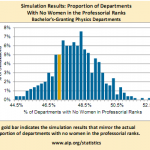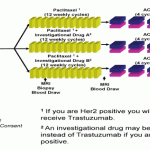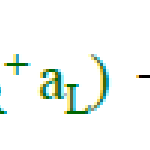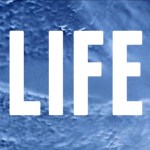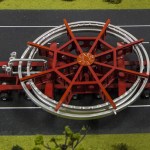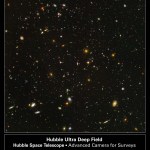Physical Sciences
When I heard that Steven Pinker had written a new piece decrying the accusations of scientism, I was anxious to read it. "Scientism" is a blunt instrument that gets swung in my direction often enough; I consider it entirely inappropriate in almost every case I hear it used.
Here's the thing: when I say that there is no evidence for a god, that there's no sign that there is a single specific thing this imagined being has done, I am not unfairly asking people to adopt the protocols of science — I am expecting to judge by their own standards and expectations. They are praying to Jesus in the…
I spent an hour or so on Skype with a former student on Tuesday, talking about how physics is done in the CMS collaboration at the Large Hadron Collider. It's always fascinating to get a look at a completely different way of doing science-- as I said when I explained my questions, the longest author list in my publication history doesn't break double digits. (I thought there was a conference proceedings with my name on it that got up to 11 authors, but the longest list ADS shows is only eight). It was a really interesting conversation, as was my other Skype interview with a CMS physicist.…
As supporters of science-based medicine know, in the woo-sphere, there is only One True Cause of Autism, and that is vaccines. At least, so it would seem. The idea that vaccines cause autism is based largely on anecdotes tinged with confirmation bias and selective memory mixed with a massive confusing of correlation with causation whereby the increase in autism prevalence over the last twenty years appears to correlate with an expansion of the vaccine schedule. Of course, as skeptics know, correlation does not necessarily equal causation, and I've often asked the question why it has to be the…
Last time in our trip through the cold-atom toolbox, we talked about light shifts, where the interaction with a laser changes the internal energy states of an atom in a way that can produce forces on those atoms. This allows the creation of "dipole traps" where cold atoms are held in the focus of a laser beam, but that's only the simplest thing you can use light shifts for. One of the essential tools of modern atomic physics is the "optical lattice," which uses patterns of light to make patterns of atoms.
OK, what do you mean "patterns of light"? Well, remember, light has both wave and…
This series of posts is intended to explain the tools and tricks used to create and manipulate samples of ultra-cold atoms; thus, it's appropriate to start with how we get those atoms in the first place. This will be a very quick background on the basic force used to make atoms cold, and then the technology of atom sources for a variety of experiments.
Okay, so you've got two things in the post title. Which are we going to talk about first? Well, the study of cold atoms really begins with the observation that light can be used to push atoms around. There are actually two ways to do that, but…
Some parts of the discussion of Oh dear, oh dear, oh dear: chaos, weather and climate confuses denialists have turned into discussions of (bit) reproducibility of GCM code. mt has a post on this at P3 which he linked to, and I commented there, but most of the comments continued here. So its worth splitting out into its own thread I think. The comments on this issue on that thread are mostly mt against the world; I'm part of the world, but nonetheless I think its worth discussing.
What is the issue?
The issue (for those not familiar with it, which I think is many. I briefly googled this and…
Dealing with various creationists, you quickly begin to recognize the different popular flavors out there.
The Intelligent Design creationists believe in argument from pseudoscientific assertion; "No natural process can produce complex specified information, other than Design," they will thunder at you, and point to books by people with Ph.D.s and try to tell you they are scientific. They aren't. Their central premise is false, and trivially so.
Followers of Eric Hovind I find are the most repellently ignorant of the bunch. They love that presuppositional apologetics wankery: presuppose god…
I've spent a bunch of time recently blogging about baseball statistics, which you might be inclined to write off as some quirk of a sports-obsessed scientist. I was very amused, therefore, to see Inside Higher Ed and ZapperZ writing about a new AIP report on women in physics (PDF) that uses essentially the same sort of rudimentary statistical analysis to address an important question.
I say "amused" because of the coincidence in methods, not because of the content. And, in fact, the content is... not likely to make them friends in a certain quarter of the blogosphere. I actually flinched when…
Most of the current models of glacial ice melting (and contribution to sea level rise) focus on ice melting and less than they need to on the process of glaciers falling apart in larger chunks such as ice bergs. Also, current understanding of glacial ice melting due to global warming indicates that the Western Antarctic Ice Sheet (WAIS) is more vulnerable to melting over coming decades or centuries than is the Eastern Antarctic Ice Sheet (EAIS). New research from two different teams seems to provide a major corrective to these assumptions.
First, about how glaciers turn into ocean water.…
I've often (perhaps too often) referred to homeopathy as The One Quackery To Rule Them All. If not homeopathy, what other quackery would rule? Homeopathy is, after all, the perfect quackery. Most of its most "potent" remedies are nothing more than water, because homeopaths believe that the more a solution is serially diluted (with succussion, or vigorous shaking, between each serial dilution), the more potent it becomes, and frequently dilute their solutions far beyond the point where it is likely that there is even one molecule of the original substance in the resulting homeopathic dilution…
I have a son who's just finished his first year as a physics undergrad. As you can imagine, I occasionally pass along a link or two to him pointing to stuff on the web I think he might find particularly interesting or useful. Thinking on that fact, I surmised that perhaps other science students might find those links interesting or useful as well. Hence, this series of posts here on the blog.
By necessity and circumstance, the items I've chosen will be influenced by my son's choice of major and my own interest in the usefulness of computational approaches to science and of social media for…
As I write this, I'm winging my way home from TAM, crammed uncomfortably—very uncomfortably—in a window seat in steerage—I mean, coach).
I had thought of simply recounting the adventures of the contingent of skeptics with whom I'm associated who did make it out to TAM to give talks at workshops and the main stage and to be on panels, but that seemed too easy. Also Orac is just too damned egotistical, and, besides, it's a four hour flight. Even so, I would be remiss if, before delving into the topic of today's post, I didn't praise Steve Novella, Harriet Hall, and Mark Crislip, for their…
One thing I left out of the making-of story about the squeezed state BEC paper last week happened a while after publication-- a few months to a year later. I don't quite recall when it was-- I vaguely think I was still at Yale, but I could be misremembering. It's kind of amusing, in an exceedingly geeky way, so I'll share it, though it's also a story of an embarrassing mis-step on my part.
So, the physical situation we were studying is described by the "Bose-Hubbard Hamiltonian": Bose because it's dealing with bosons (there's also a Fermi-Hubbard version, I believe); Hubbard after [mumble]…
Yesterday's write-up of my Science paper ended with a vague promise to deal some inside information about the experiment. So, here are some anecdotes that you would need to have been at Yale in 1999-2000 to pick up. We'll stick with the Q&A format for this, because why not?
Why don't we start with some background? How did you get involved in this project, anyway? I finished my Ph.D. work at NIST in early 1999, graduating at the end of May. I needed something to do after that, so I started looking for a post-doc by the don't-try-this-at-home method of emailing a half-dozen people I knew…
Discovery, by nature, has a ripple effect. When one thing is found to be plausible, testable, or true, a suite of potential other truths and plausibilities tend to follow suit. This is the nature of inductive reasoning, the foundation of the scientific method, and the reason why science–as a human project–is generational. We discover something unexpected, and we celebrate twofold, threefold, and morefold, because its nuances and implications can ebb outwards, often lending hope to scientists working in entirely different fields.
Take the recent discovery of life in Lake Vostok, for instance:…
The day I bought my iPad, as I was taking it out of the box, SteelyKid (then 3) came bopping into my office, spotted it, and declared "I want to play Angry Birds!" It's a remarkable demonstration of the genius of their product: not only have they created a game that a three-year-old can play, they've managed to make every three-year-old in the industrialized world aware of their product.
It's also a testament to my current obsession, the universality of science, and not just because you can use the game to illustrate physics. After all, the process of playing the game serves as a good…
Cystic Fibrosis is a serious genetic disorder caused by the inheritance of a defective transporter protein. It leads to an accumulation of mucus and fluids in the lungs that can cause progressive scarring and damage to the tissue, and eventually loss of so much lung function that respiration is inadequate, and the victim dies. It's a terrible disease, and it's in the news today because a ten year old girl just received a lung transplant to deal with CF.
If you want to learn more or do more, read the Cystic Fibrosis Foundation website. That's a reasonable source of public health information.…
Big science is a massively collaborative endeavor. From the initial theoretical puzzles to the brilliant engineers that build on-of-a-kind machinery, experts come together to make discoveries happen. Case in point: We’re moving this 50-foot-wide physics experiment over 3,200 miles of land, sea, and river, starting on Long Island, NY and ending in Batavia, IL. Sometimes understanding the fabric of the universe requires a very technical and very long journey.
The 50-foot-wide muon ring assembled at Brookhaven Lab.
The experiment is called Muon g-2 (pronounced gee-minus-…
Chris Mooney has been exploring the basic underpinnings of denialism lately, with this latest article a good summary of the basic problems:
In a recent study of climate blog readers, Lewandowksy and his colleagues found that the strongest predictor of being a climate change denier is having a libertarian, free market world view. Or as Lewandowsky put it in our interview, "the overwhelming factor that determined whether or not people rejected climate science is their worldview or their ideology." This naturally lends support to the "motivated reasoning" theory—a conservative view about the…
"There could be no fairer destiny for any physical theory than that it should point the way to a more comprehensive theory in which it lives on as a limiting case." -Albert Einstein
Imagine: you've worked hard all your life, through your primary and secondary school education, where you worked hard to get into a good college, through your undergraduate degree, where you found something you were passionate enough about that you wanted to study it even further, and then through graduate school, where you spent half-a-decade or more immersing yourself, non-stop, in an area of research in a field…



